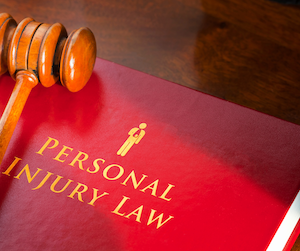Injured in Texas? Essential Steps to Take After an Accident
 In the blink of an eye, an accident can change your life forever. Understanding the steps to take following an injury in Texas is crucial for your legal and physical recovery.
In the blink of an eye, an accident can change your life forever. Understanding the steps to take following an injury in Texas is crucial for your legal and physical recovery.
Personal injury law encompasses a range of situations, from car accidents to slips and falls, and knowing your rights is essential. Distinguishing between personal injury and bodily injury can also impact your claim and compensation.
This article will guide you through the necessary steps to navigate Texas's complex legal framework surrounding personal injury claims, including the relevant statutes, negligence standards, and the burden of proof you'll need to establish.
What Is Personal Injury?Personal injury law lets people in Texas seek compensation for harm caused by someone else's wrongful behavior, often due to negligence. Common cases include traffic accidents, slip-and-falls, medical malpractice, and defective products.
A personal injury claim can cover economic damages, such as medical bills and lost wages. It also includes non-economic damages like pain and suffering, emotional distress, and reduced quality of life. To succeed in a claim, the injured person must prove the fault party's liability.
Personal injury claims also consider emotional and mental damages like anxiety and PTSD. These are part of the compensation alongside physical injuries.
In Texas, understanding your legal options is crucial. Working with personal injury attorneys or a legal team can guide you through the legal process. They help ensure you receive a fair settlement for severe injuries or wrongful death claims. Always remember, the statute of limitations sets a filing deadline, so act promptly.
Differences Between Personal Injury and Bodily InjuryWhen discussing legal terms, it's essential to know the difference between personal injury and bodily injury. Both are crucial in the field of law, but they differ in scope and impact.
Personal Injury- Scope: Covers harm to a person's mental, emotional, and physical well-being.
- Claims: Includes negligence, emotional distress, and financial losses.
- Damages: Can result in compensation for mental anguish, medical bills, and non-economic damages.
- Scope: Specifically relates to physical harm or injury to a person’s body.
- Claims: Commonly associated with physical injuries from accidents.
- Damages: Often results in compensation for immediate medical care and physical injury.
- Emotional Impact: Personal injury encompasses emotional distress; bodily injury focuses on physical harm.
- Legal Use: Personal injury is broader and can be applied in many legal claims, while bodily injury is more specific.
Understanding these differences ensures proper handling of legal claims and navigating the complex legal process efficiently. If you experience an injury, consulting with personal injury attorneys can clarify your legal options.
Legal Framework Governing Personal Injury Claims in TexasIn Texas, personal injury law involves rules and statutes that guide how injury claims proceed. Familiarity with the state's legal framework can aid in achieving fair settlements and navigating the legal process smoothly.
Statutory LimitationsTexas has specific time limits for filing personal injury lawsuits, known as the statute of limitations. Generally, you have two years from the date of the injury to file a claim. This filing deadline is critical. Missing it could result in losing the right to seek compensation. An exception may apply in cases like wrongful death claims, where the clock might start ticking from the date of death instead.
Negligence StandardsNegligence is a key component in personal injury cases in Texas. For a successful claim, you must prove that the fault party did not act as a reasonable person would have. This involves demonstrating that the responsible party breached their duty of care and that this breach caused the injuries sustained. The concept of a dangerous condition may also come into play, further emphasizing the importance of proving negligence.
Burden of ProofIn a personal injury claim, the injured person carries the burden of proof. This means they must provide evidence showing that the defendant's actions led to their severe injuries or other damages. Evidence may include medical reports, eyewitness accounts, and expert testimonies. The aim is to prove liability for both economic and non-economic damages, such as medical bills and emotional distress. Meeting this burden is essential for obtaining a fair settlement or any punitive damages sought.
By understanding the statutes and standards, you can better navigate the complexities of personal injury claims in Texas. For tailored legal advice, seeking help from a personal injury lawyer can be beneficial.
Get Help From an Experienced Personal Injury Lawyer in TexasAn experienced personal injury attorney in Harris County, Galveston County, Fort Bend County, Montgomery County, Brazoria County, Houston, Sugar Land, Missouri City, and Stafford, Texas at Thornton Esquire Law Group, PLLC will take over the case from the very beginning and make sure that you receive fair compensation for your injuries. A personal injury lawyer will help you recover medical expenses, lost wages, pain and suffering, and other losses due to the accident. Contact us today at www.thorntonesquirelawgroup.com for a free case evaluation consultation.
 Thornton Esquire Law Group Home
Thornton Esquire Law Group Home














